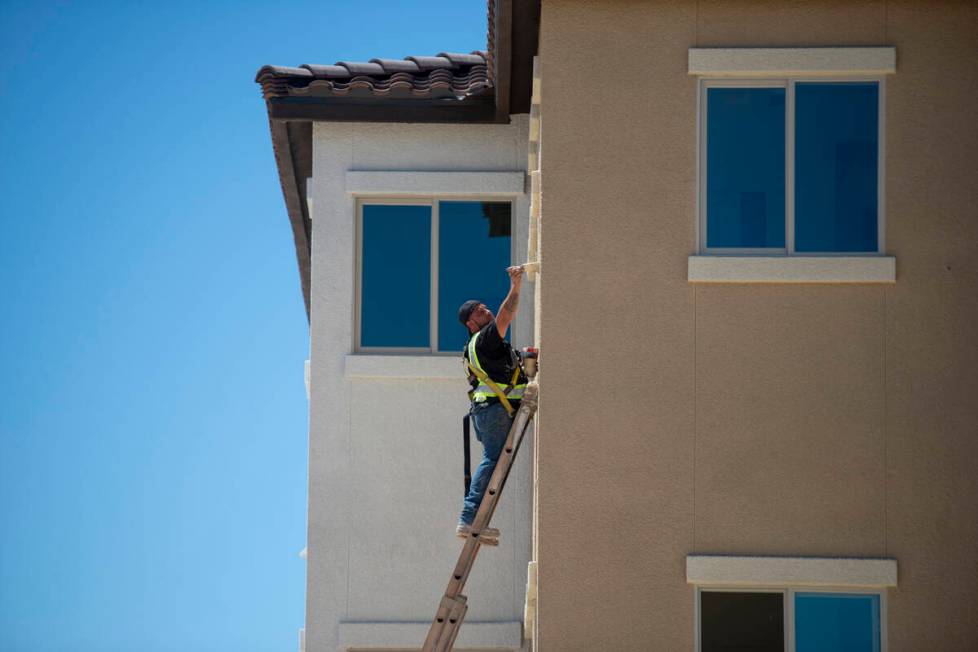Low-income Las Vegas renters would get help under bill

WASHINGTON — Skyrocketing housing prices, waiting lists and competition from institutional investors are keeping working-class Americans from purchasing homes in the nation’s largest metropolitan markets, including Las Vegas, witnesses told a House committee Wednesday.
The coronavirus pandemic added more strain with supply chain issues that crimped construction. But financing and rising costs continue to make housing unaffordable for low-income, Black and Hispanic families, experts said.
“Even before the pandemic the country was in the grips of a pervasive affordable housing crisis,” said Audra Hamernik, president of Nevada Hand, an affordable housing nonprofit group, in testimony before the House Ways and Means Committee.
The committee is considering legislation designed to ease the housing crisis through tax credits and a neighborhood reinvestment program to help low-income families stay in homes, said Chairman Richard Neal, D-Mass.
Rep. Steven Horsford, D-Nev., a committee member, also filed a bill Tuesday to crack down on institutional buyers and unscrupulous practices.
Republicans skeptical
Republicans on the committee, however, cast doubt that additional federal housing aid programs were needed. They pointed to inflation as the reason for the skyrocketing increase in prices and rents.
“I don’t think these massive increases in housing (assistance programs) is going to help us,” said Rep. Kevin Brady, R-Texas, the ranking Republican on the committee.
Rep. Jason Smith, R-Mo., blamed the “Biden Bailout” for the rapid rise in inflation.
And Brady said Democrats were blaming everyone but President Joe Biden for the housing crisis.
“American families and workers are finding that the Joe Biden economy is a very cruel economy,” Brady said.
But Democrats on the panel were quick to note that inflation is happening worldwide, following the pandemic and the Russian invasion of Ukraine.
And experts who testified before the committee were mostly in agreement that investment buyers have exacerbated the shortage of available homes and home prices and rents.
The residential real estate market crisis also has squeezed the most vulnerable, low-income renters, they told the committee
Help for low-income renters
Nevada Hand constructs affordable housing developments for residents who earn between $15,000 to $45,000 per year. Hamernik said only 10 percent of low-income renters receive any type of housing aid.
What’s worse, those trying to buy homes in Las Vegas are seeing a lack of inventory. Fully 17 percent of homes purchased in the North Las Vegas area last year were bought by institutional investors, Horsford said.
“Companies with no interest or connection to these communities are then raising rents to levels to price out hard-working families that have lived in these areas for generations,” Horsford said.
His bill would make it illegal to rent or sell a dwelling during a housing crisis for an unreasonable price.
The bill would also cap the percentage of homes investment buyers could obtain in a market to prevent price manipulation.
The Department of Housing and Urban Development would have the authority to determine “unreasonable” prices and to punish violators under the bill.
Meanwhile, in all of Nevada, there is a shortage of rental homes affordable and available to extremely low-income households, according to the National Low Income Housing Association, a Washington-based advocacy group.
Of the roughly 97,000 extremely low-income renter households in the state, 26 percent of those renters were classified as seniors, 19 percent were disabled, and 36 percent were in the labor force, according to the National Low Income Housing Association.
The association estimated that Nevada is short nearly 80,000 dwellings to meet the demand for shelter for low-income families across the state.
Contact Gary Martin at gmartin@reviewjournal.com. Follow @garymartindc on Twitter.